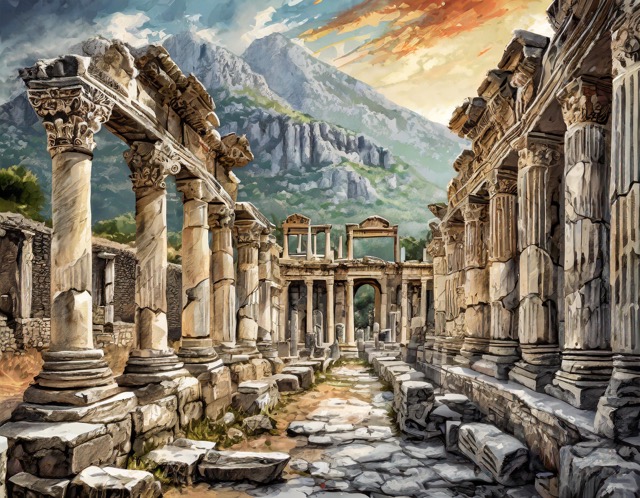- Home
- Heritage
Heritage

Heritage
The heritage of Ephesus represents one of the greatest treasures of the ancient world. This legacy lives on through the enduring structures, artworks, and historical monuments found in every corner of the archaeological site.
Temple of Artemis:
Recognized as one of the Seven Wonders of the Ancient World, the Temple of Artemis played a central role in the city’s religious and cultural life.
Library of Celsus:
Dating back to the Roman era, the Library of Celsus is considered one of the largest libraries of the ancient world. It symbolizes both architectural beauty and the importance placed on knowledge.

The Great Theater:
With a seating capacity of 25,000, the Great Theater was one of the largest open-air theaters of its time. It served as a hub for artistic performances and significant public events.
Terrace Houses:
Shedding light on Ephesus’s social life and daily routines, the Terrace Houses reveal the luxurious lifestyle of the wealthy and noble citizens of the ancient city.
Streets and Urban Planning of Ephesus:
Marble-paved roads, wide avenues, and a systematic urban layout showcase the architectural and engineering achievements of Ephesus.
Religious and Public Structures:
Buildings such as the Temple of Hadrian, the Temple of Serapis, and the Fountain of Trajan highlight the architectural diversity and aesthetic richness of Ephesus.
Early Christian Heritage:
Ephesus also holds great significance in Christian history. Sites such as the preaching location of Saint Paul and the Cave of the Seven Sleepers form key elements of the city’s religious legacy.
